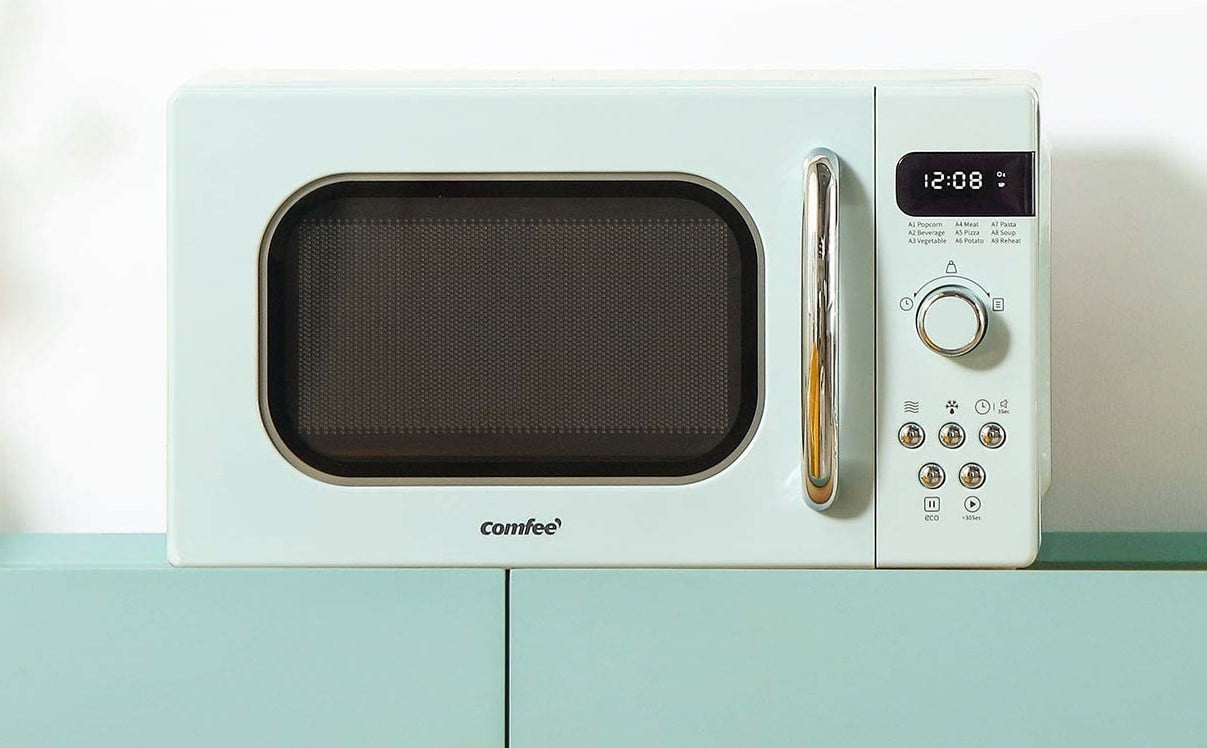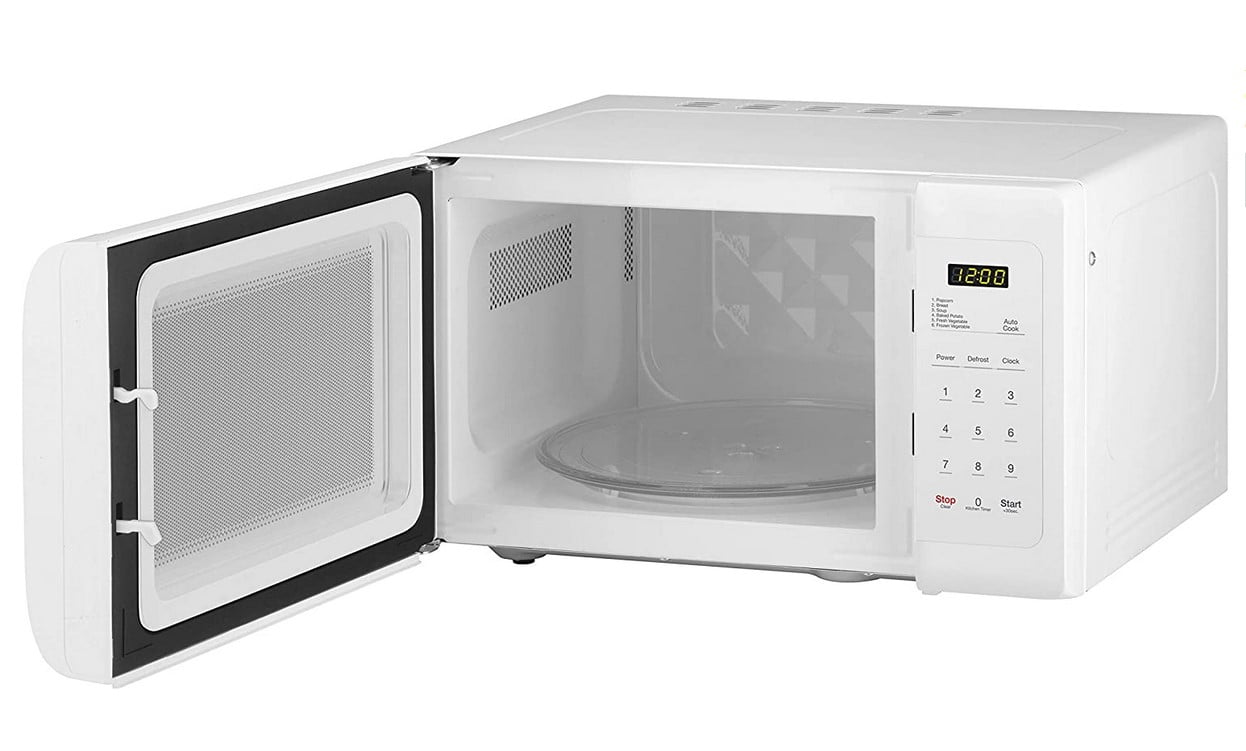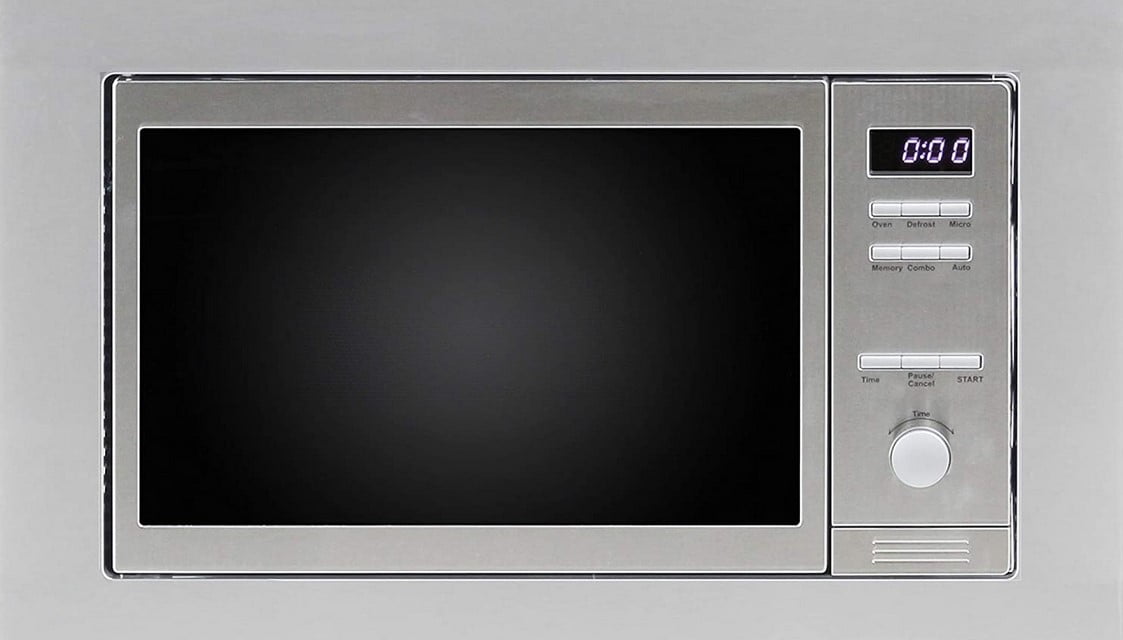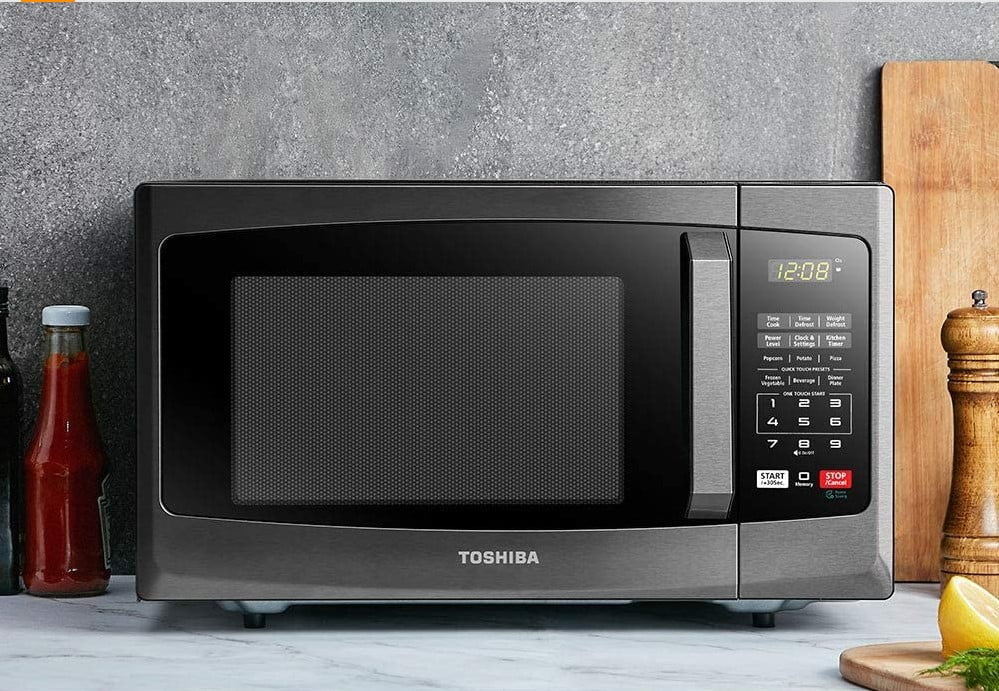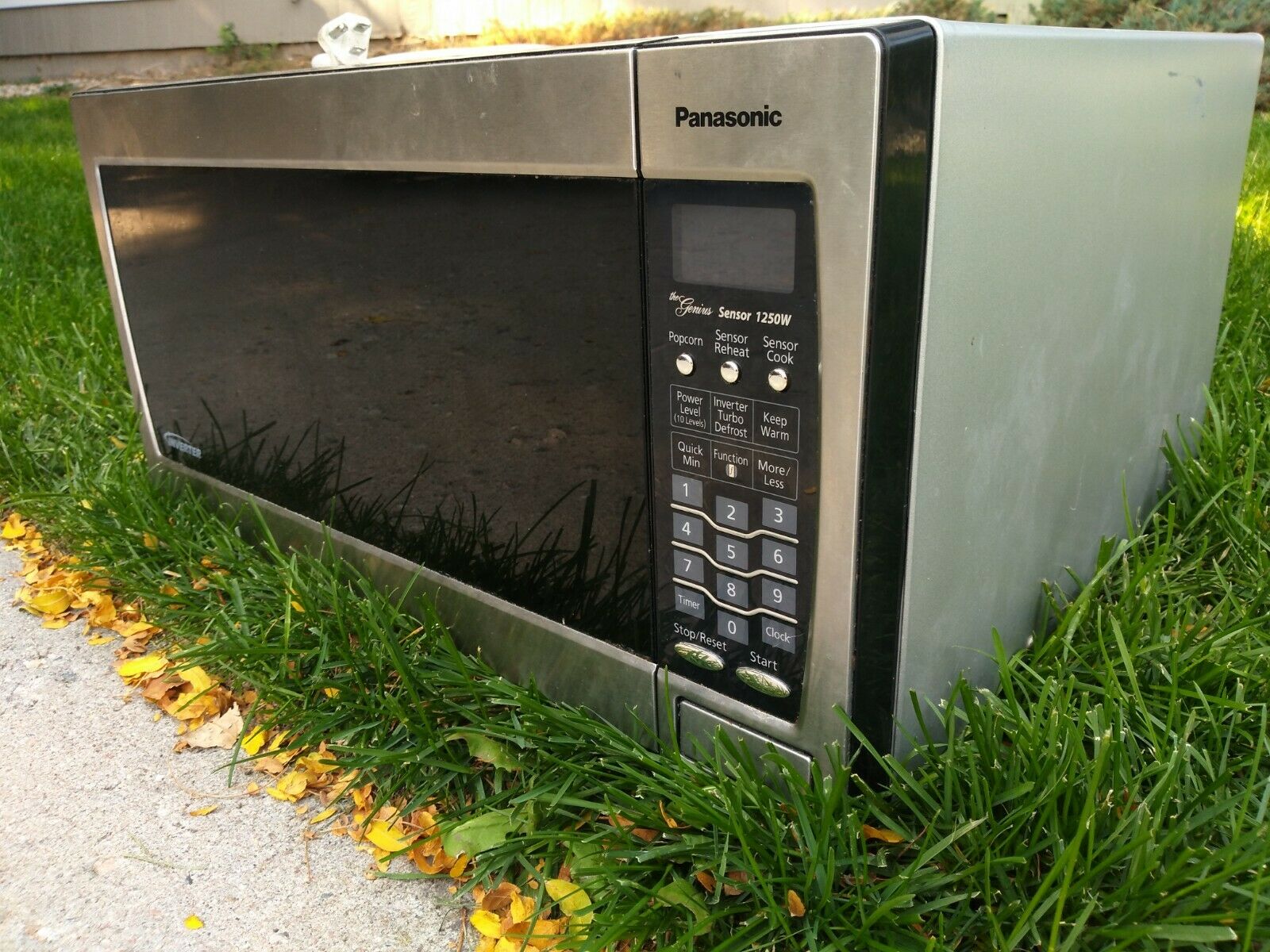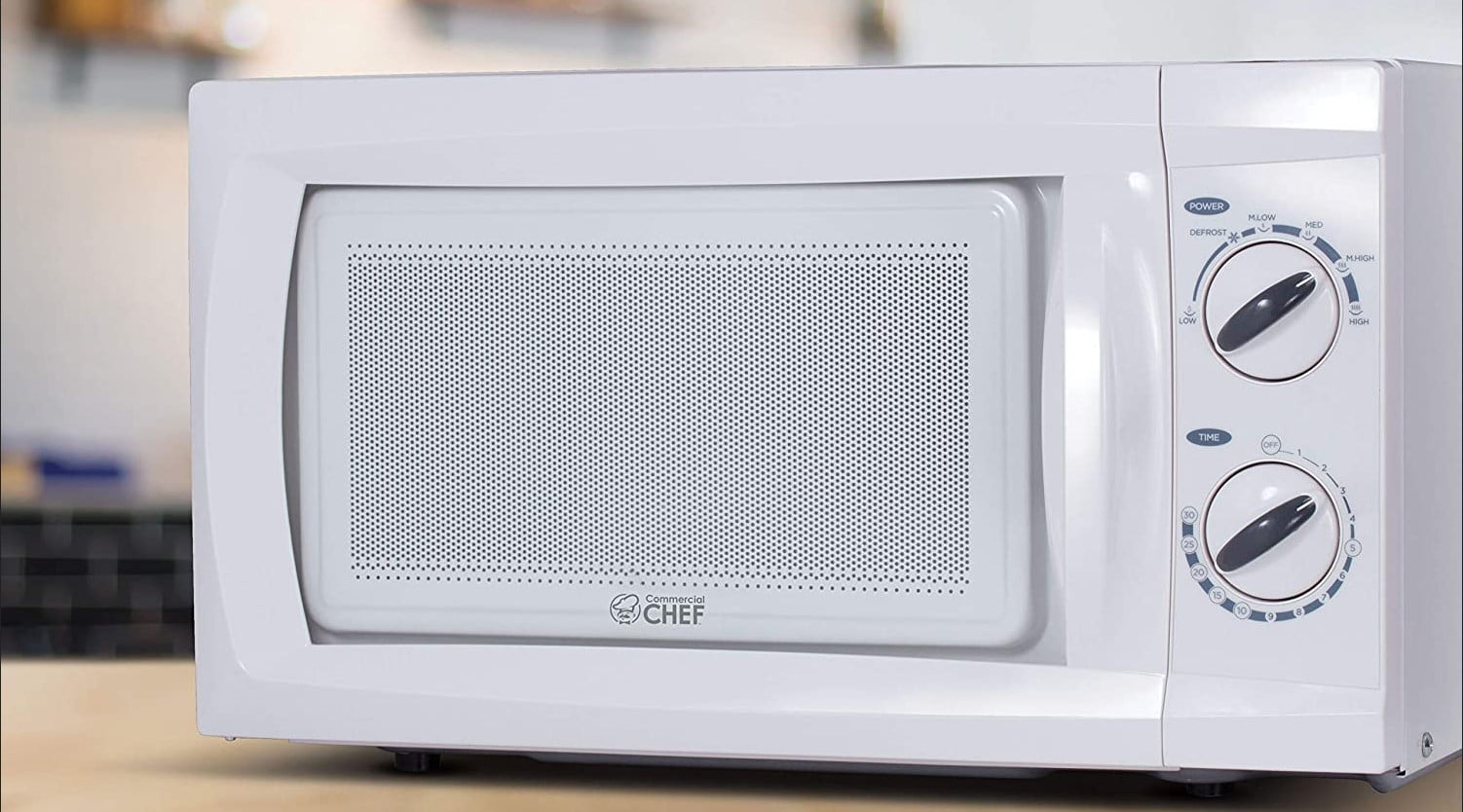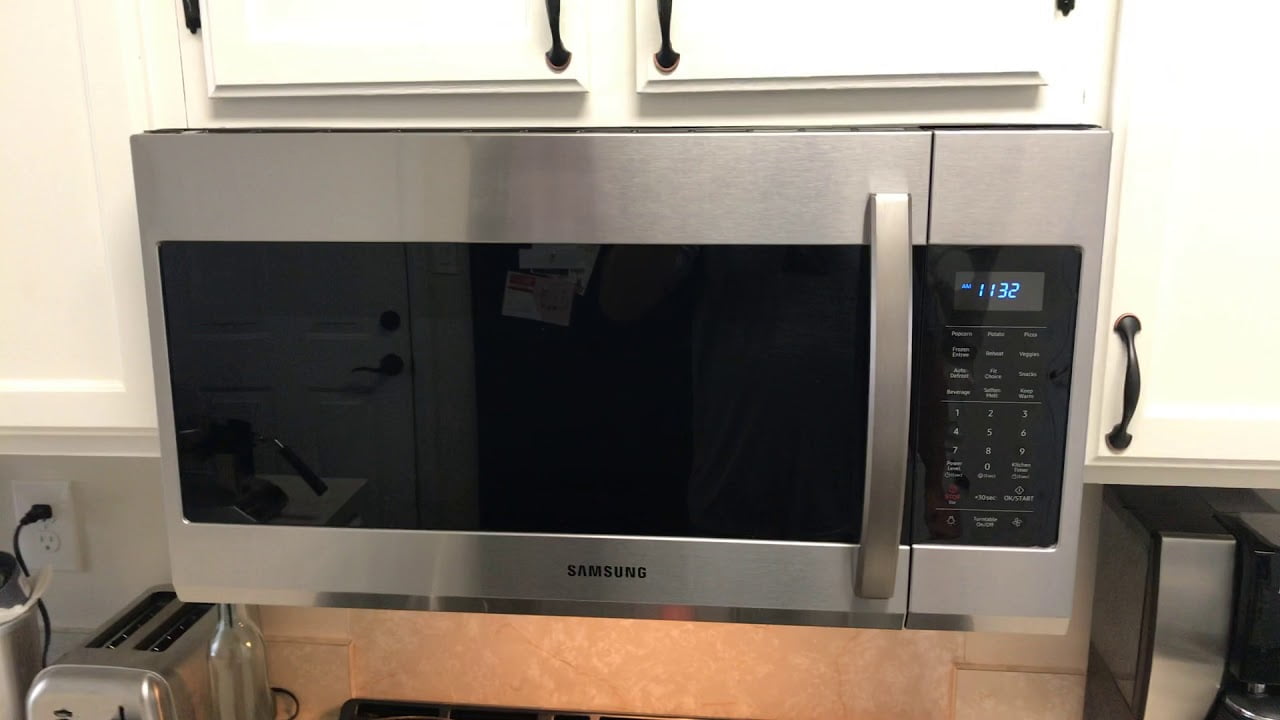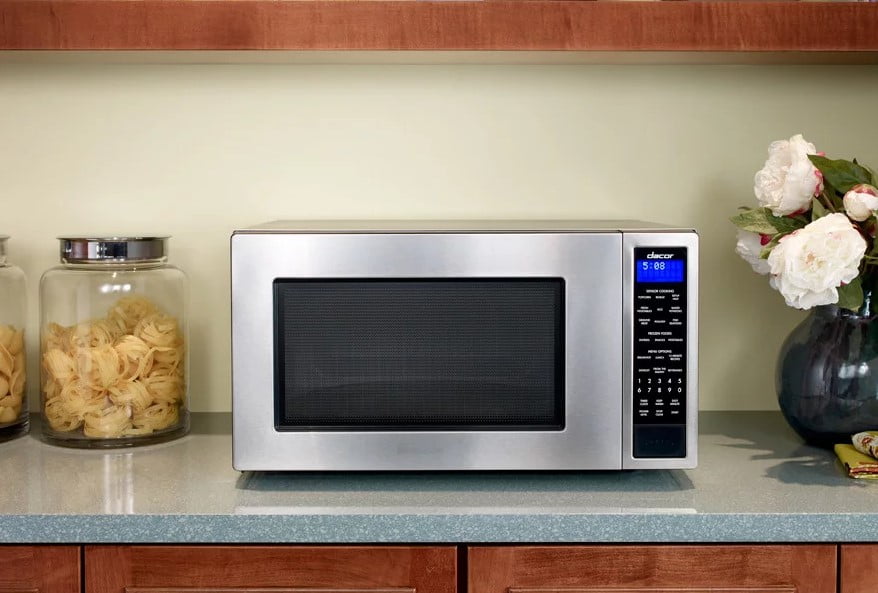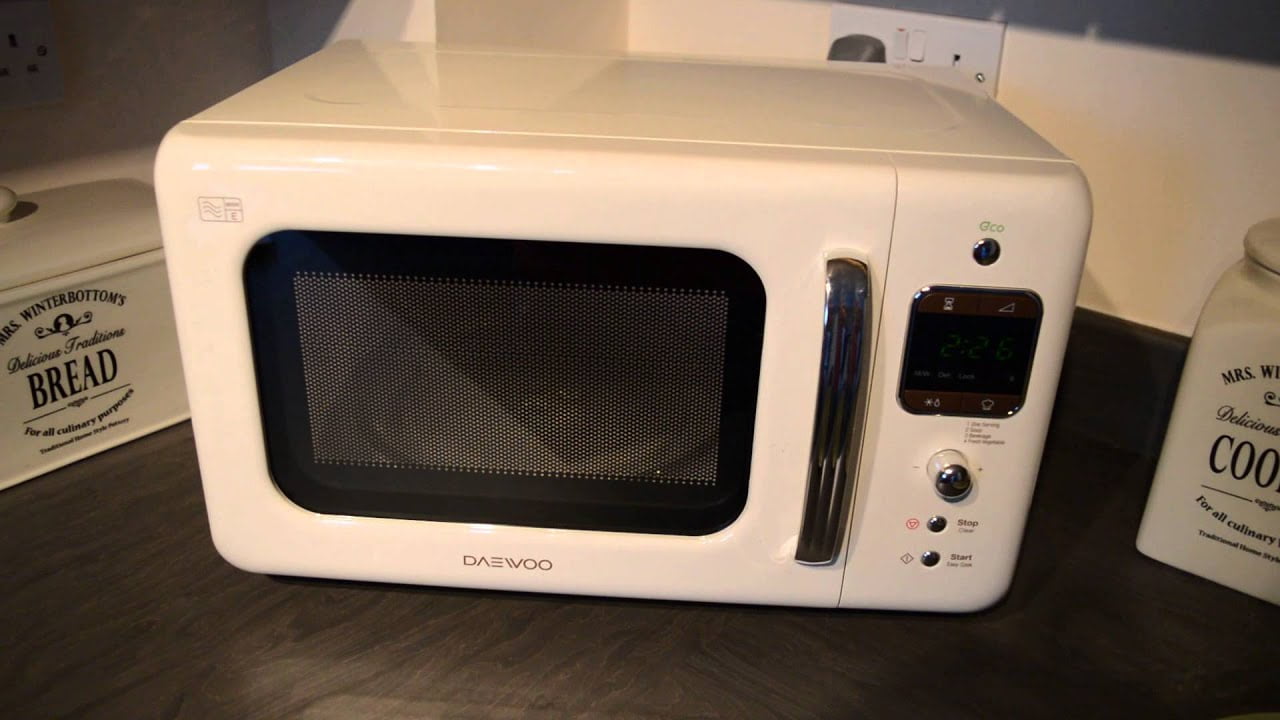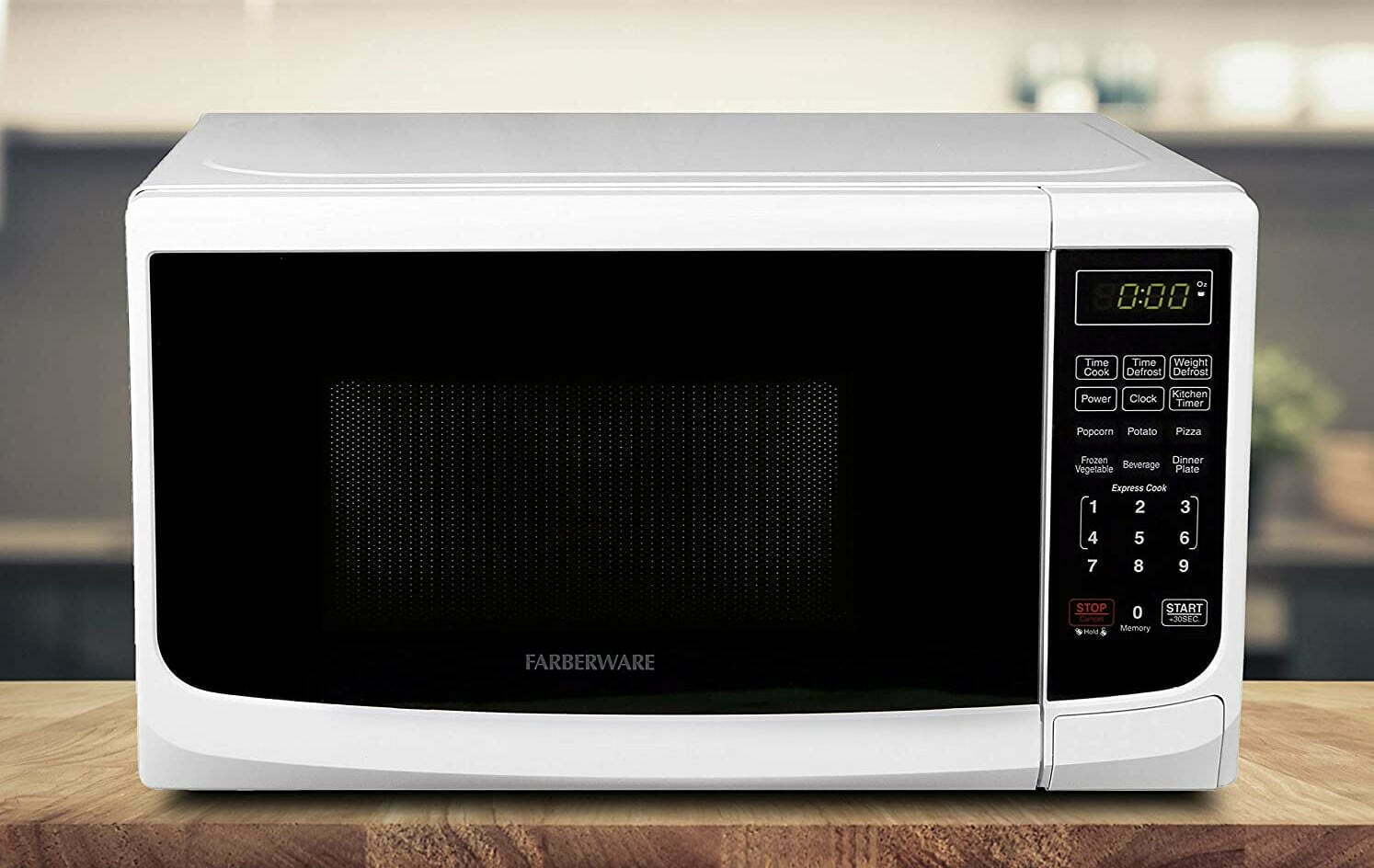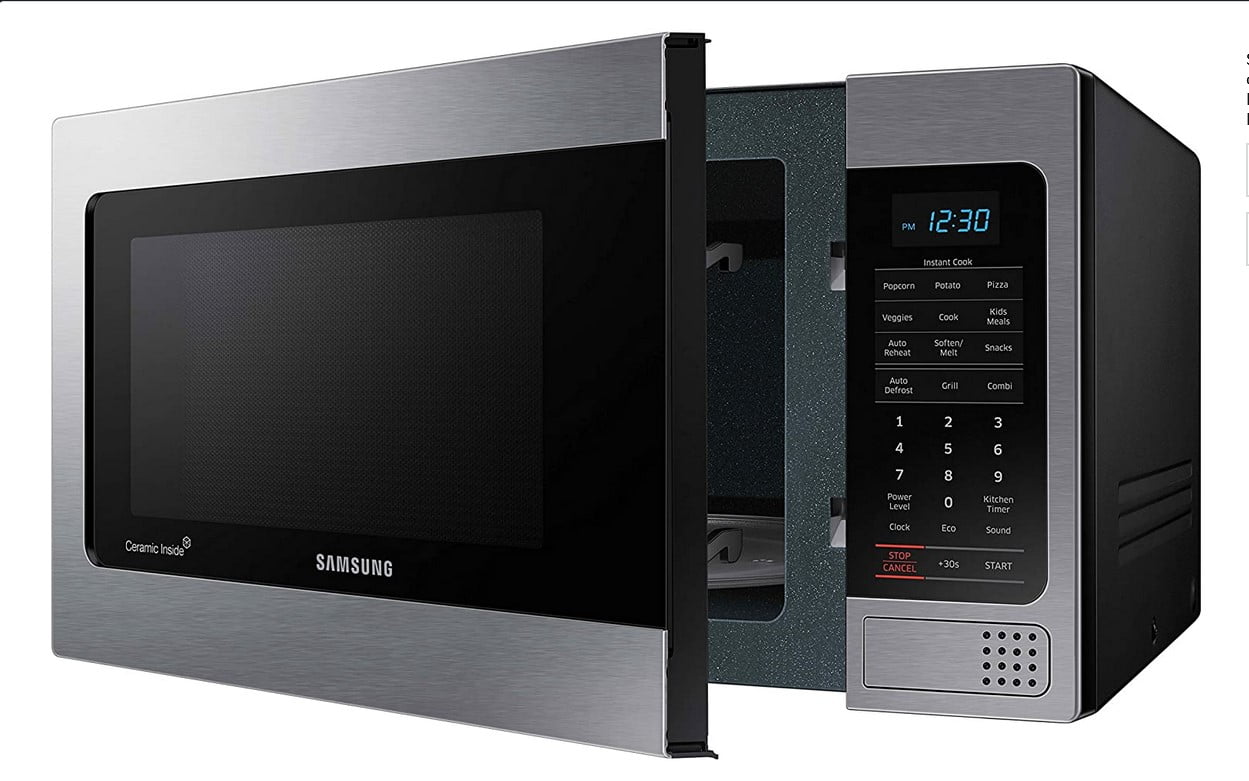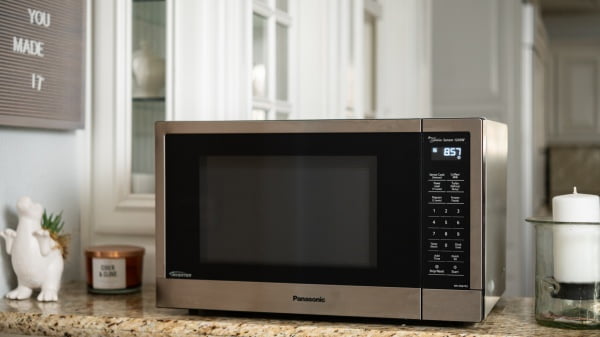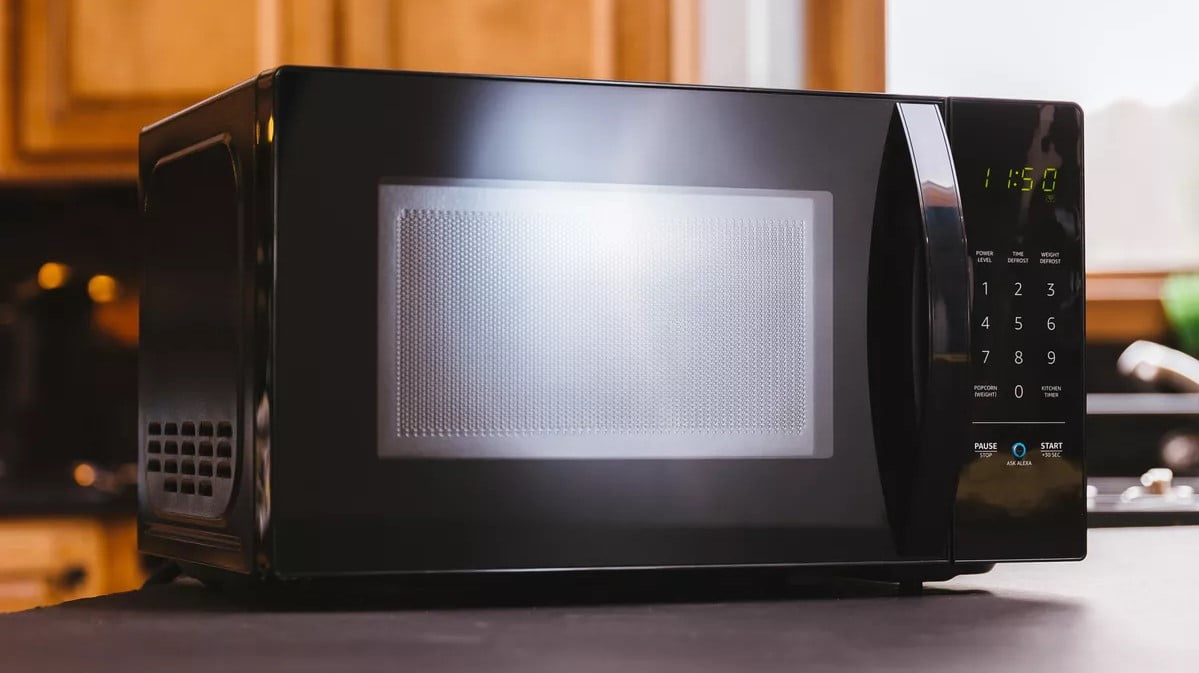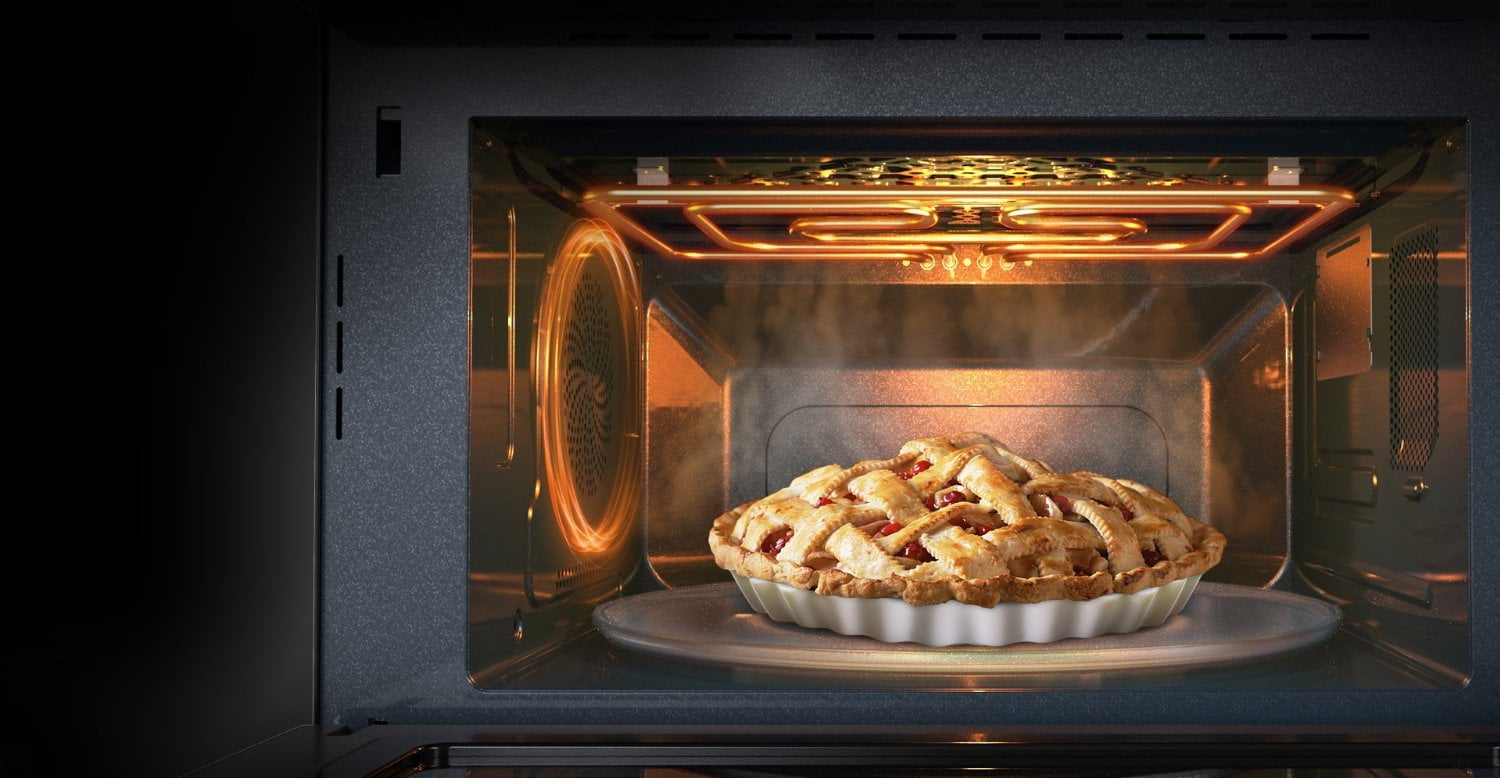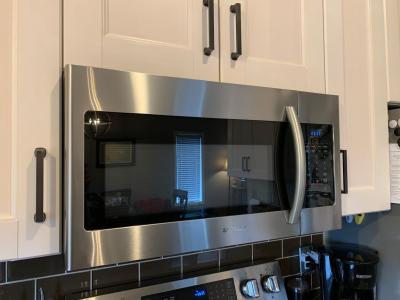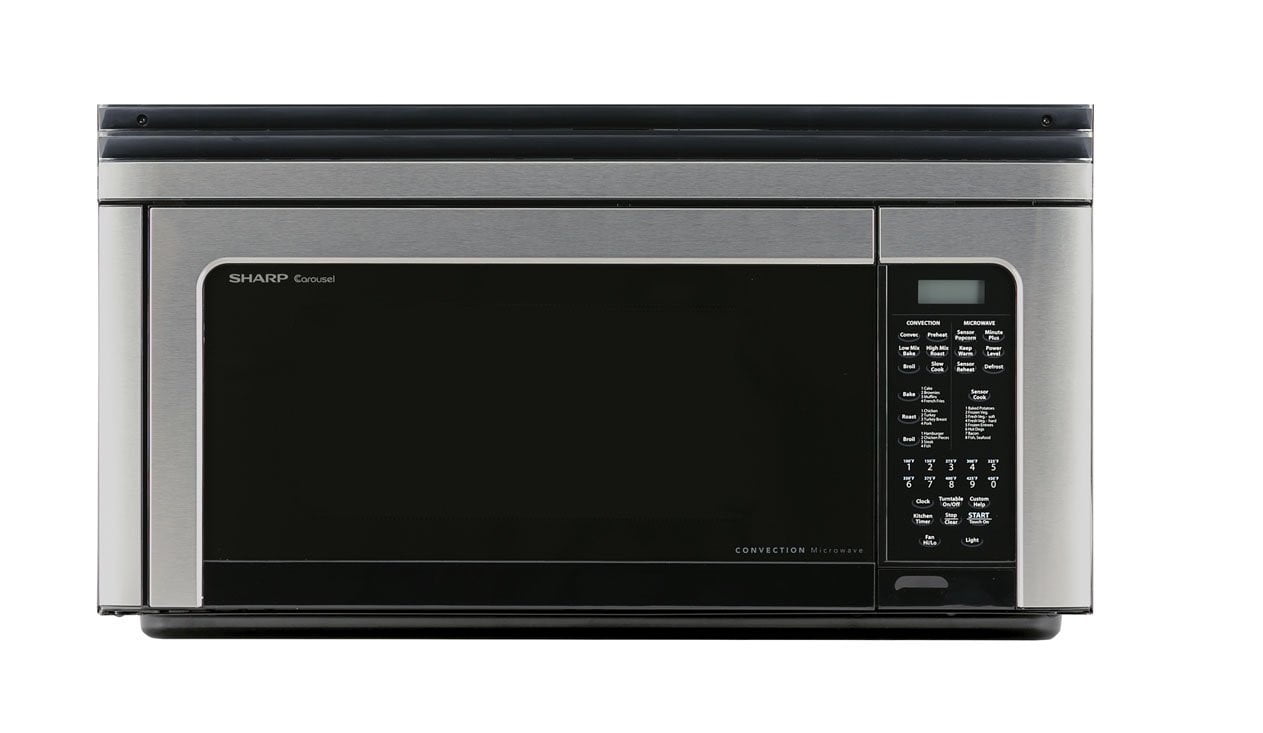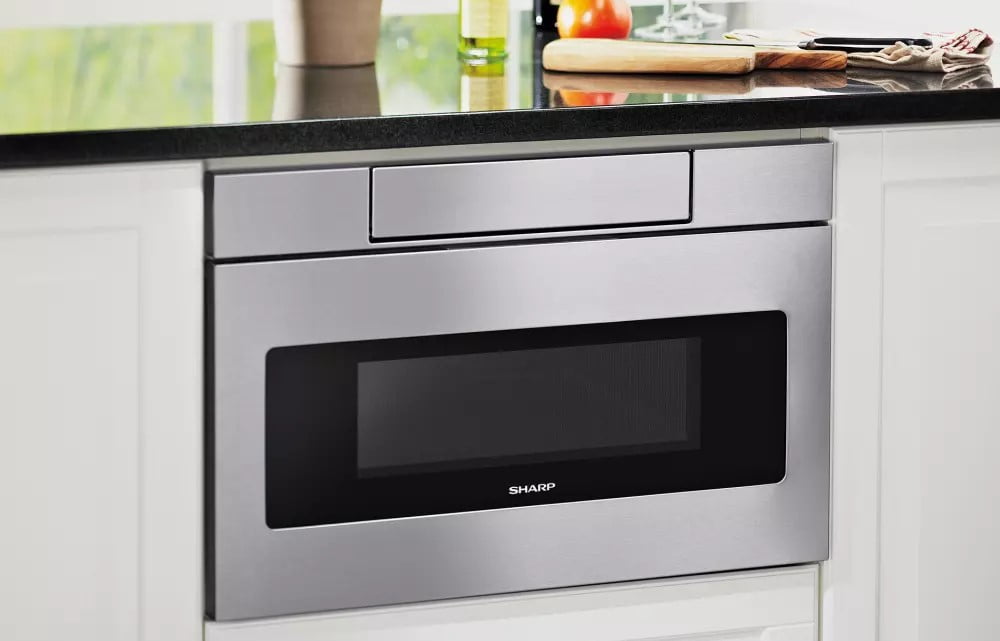One not uncommon issue microwave owners experience is when the house lights dim while the microwave is on. While it’s not always a critical issue, it can be a sign of issues you may want to take care of, and it can happen regardless of the quality of the microwave oven.
KEY TAKEAWAYS:
- Before looking into possible issues with home circuitry or wiring, check to see if the issue lies in old or dying light bulbs.
- Dimming or flickering house lights may be an indication of a serious electrical issue outside of the home, in this case contacting your utility company or a professional electrician is necessary.
- The most common cause of dimming house lights during microwave use is the microwave drawing too much power from a shared circuit- use a dedicated circuit for any major appliance.
There are a number of reasons your home’s lights may dim while the microwave is in use that you can troubleshoot at home for, and there are a few options when it comes to what to do next.
Why a Microwave Light is Dimming During Use
Experiencing dimming of your kitchen lights or other home lights while your microwave is being used can be alarming and a sign of various issues both in your home electrical system and your microwave. Here are the most common reasons house lights dim while your microwave is in use and how you can troubleshoot for it. If your lights are dim and your microwave is not heating, you probably have a separate issue. Click the following for a guide on another common microwave issue- how often to replace a charcoal filter.
Insider Tip
Dimming or flickering lights are almost always due to a microwave drawing too much power from a circuit, though the underlying issues can vary.
Overloaded Circuits
The electrical circuits for any home or apartment have a limited amount of voltage they can draw before being overloaded. An overloaded circuit is the most common reason that lights in a house dim, and it can be tested fairly simply by checking to see if the microwave is on the same circuit as the lights that are going dim.
Any large appliance like a microwave, air conditioner, vacuum cleaner, or dishwasher should always be put on a dedicated circuit to avoid this issue. Even small appliances like a hair dryer can draw too much power for some circuits and cause dim lights and can require a separate circuit.
Faulty Wiring
Another culprit for this issue, especially in older homes and apartments, is faulty or poorly installed wiring. Wiring that’s older or installed improperly won’t necessarily be able to meet the power demands of large appliances and can easily cause brownouts and light dimming during use of an appliance.
If you suspect this is the issue, it’s worth trying to find out how old the wiring is in your home, or acquiring the services of a repair technician to troubleshoot it. Having modern wiring in your home can prevent a lot of power-related issues like this.
Power Grid Problems
If your home’s wiring is up to date and properly installed and you don’t have any devices drawing too much power for your home’s circuits, there may be an issue with the local power grid itself. Very often this is due to a higher demand on the power grid from multiple homes and buildings than the power grid is capable of handling, causing a voltage drop in some residences. As such, there’s not a lot you can do if this is the situation apart from putting a call to the utility company.
Dying/Old Bulbs
It might seem obvious to mention, but sometimes, dimming lights may actually just be due to bulbs that are dying or poorly connected. It’s always worth checking this first, especially if it’s only one light source dimming and you haven’t changed your bulbs for some time. Luckily, you can easily enough switch to a new bulb.
Neutral Wire Issue
This is an issue that actually has nothing to do with your microwave or other appliance but can be confused with the above issues. Lights that go between bright and dim regularly are very often a sign of a corroded, loose, or failed neutral wire at the main breaker of your building or home, and can be a fire hazard if not dealt with.
If the light dimming issue seems to persist even when your microwave isn’t being used, this is likely the culprit, and you should contact a licensed electrician immediately.
Warning
If house lights dim even while the microwave isn’t in use, it may be an indication of a more serious issue with the main circuit or power grid itself, and a professional electrician or the utility company should be immediately contacted.
F.A.Q.S
Why are my lights flickering when I use my microwave?
If your home lights are flickering when your microwave is in use, it could be for the same reason lights sometimes dim during large appliance use- faulty electrical wiring, old light bulbs, a power grid issue, or a failed neutral wire at your main circuit breaker are the most common reasons.
Is it bad if my house lights dim when I use appliances?
If your house or apartment lights dim or flicker when you’re using a large appliance like a microwave, it may not necessarily be dangerous (though it could be), but it’s something to pay attention to. Often, it means your appliance is drawing more power than your electrical system can handle.
Are dimming lights a wiring issue or a power company issue?
They can be either- sometimes they’re due to an appliance being on a circuit that can’t handle the amount of power it draws, and can be solved by plugging the appliance into a dedicated circuit, but if the issue persists even when the appliance isn’t in use, it may be a power grid or main circuit issue.
STAT: The lifespan of a light bulb refers to the number of hours it provides before it starts putting out less illumination. (source)
STAT: The percent of residential electricity used by major appliances in U.S. homes has risen from 17% to 31% in the past three decades. (source)
STAT: The heating effect of strong microwave beams was accidentally discovered in 1945 (source)
REFERENCES:
- https://www.sciencedirect.com/science/article/pii/S0959652620353944
- https://en.wikipedia.org/wiki/Microwave_oven
- https://www.youtube.com/watch?v=uv5oOhFo21s&ab_channel=FinanHomeServicer
- https://en.wikipedia.org/wiki/Home_wiring
- https://www.youtube.com/watch?v=atPvvDDE4OM&ab_channel=SilverCymbal
- https://www.ncbi.nlm.nih.gov/pmc/articles/PMC7926306/

















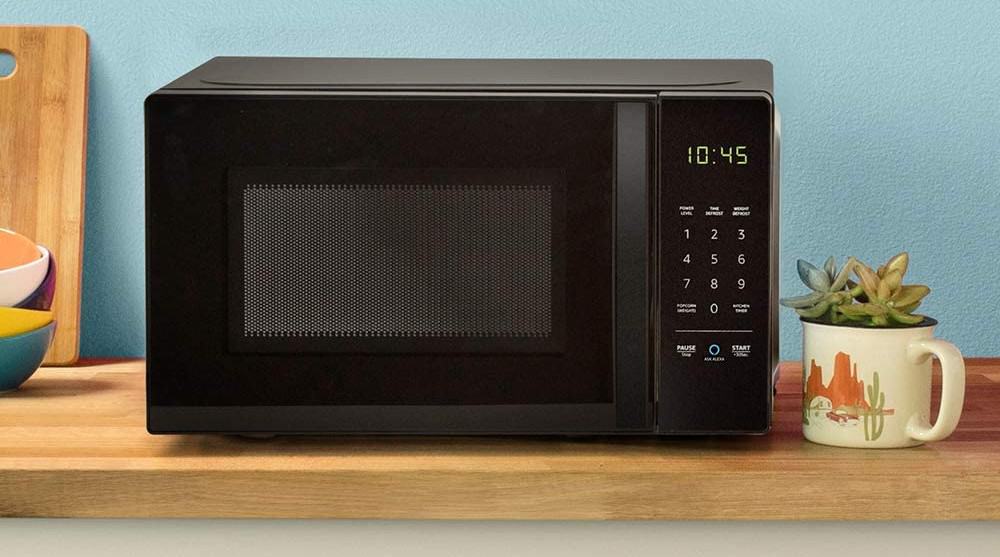

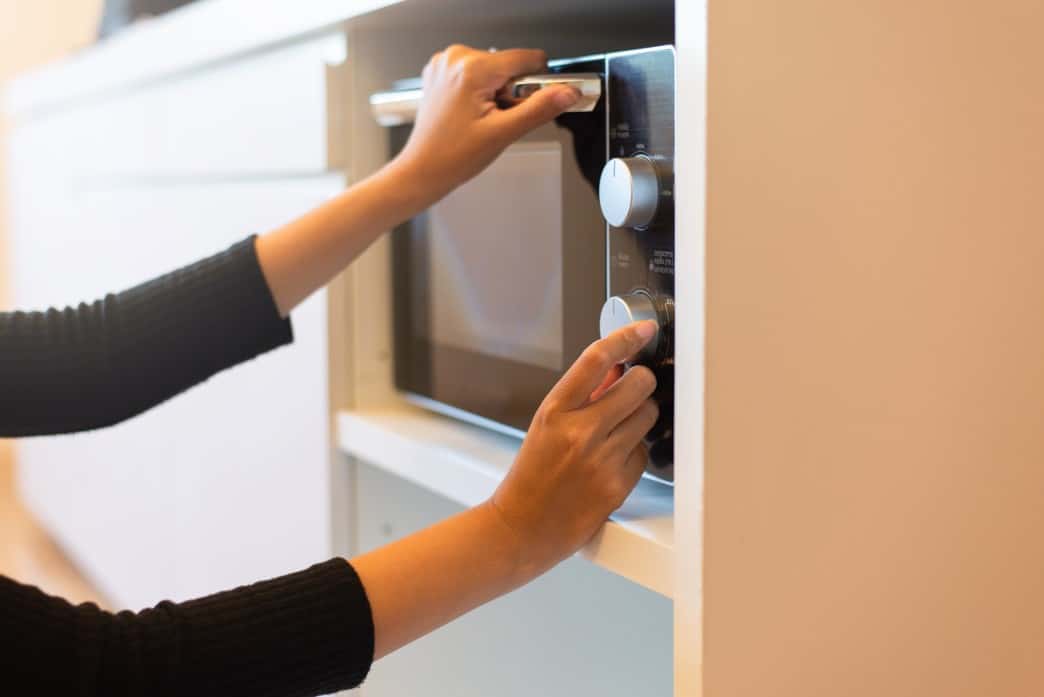
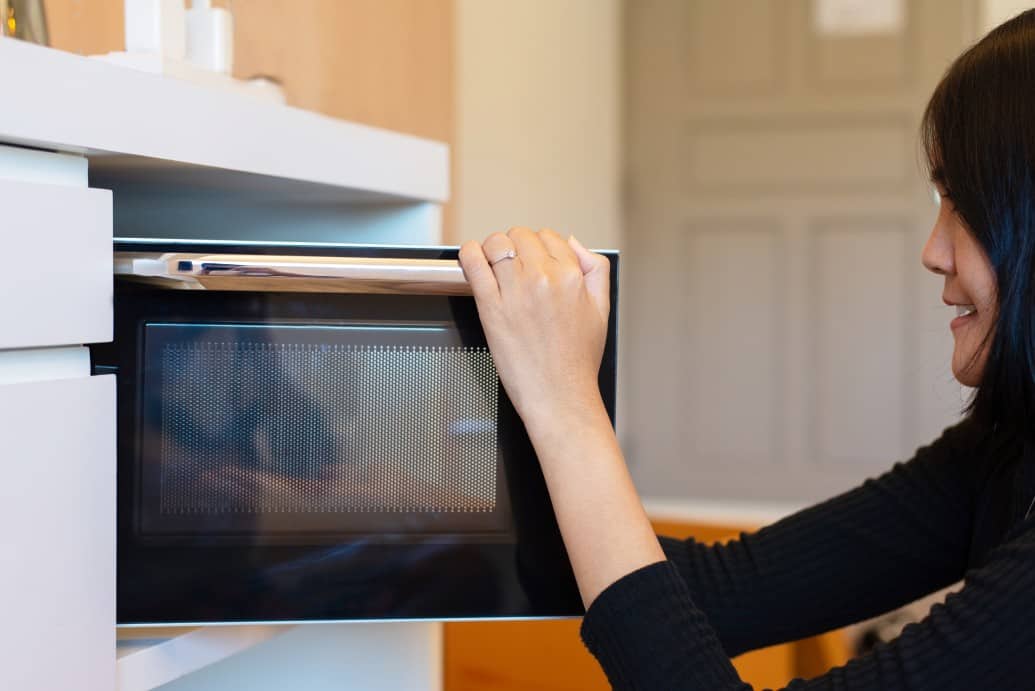
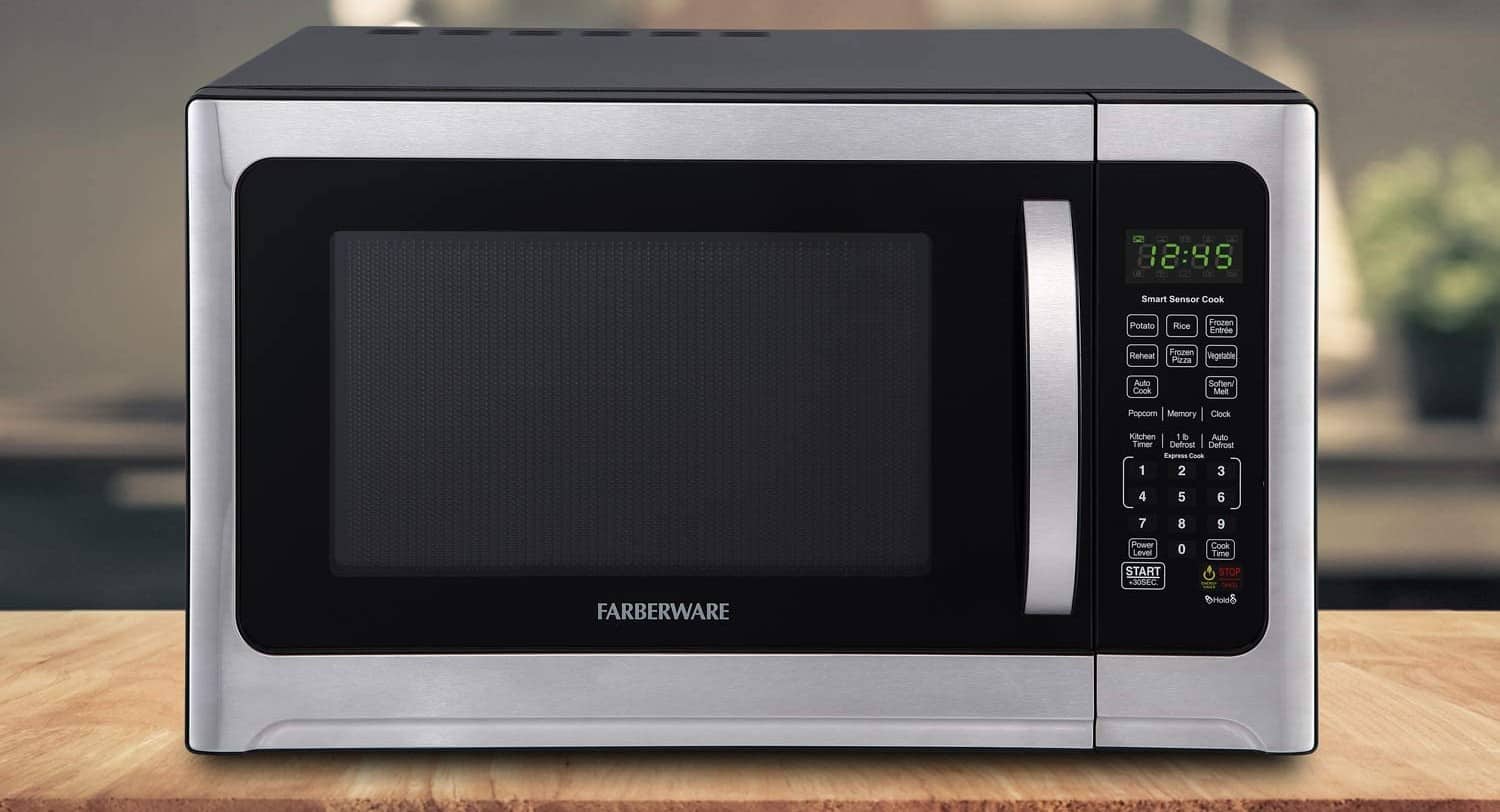
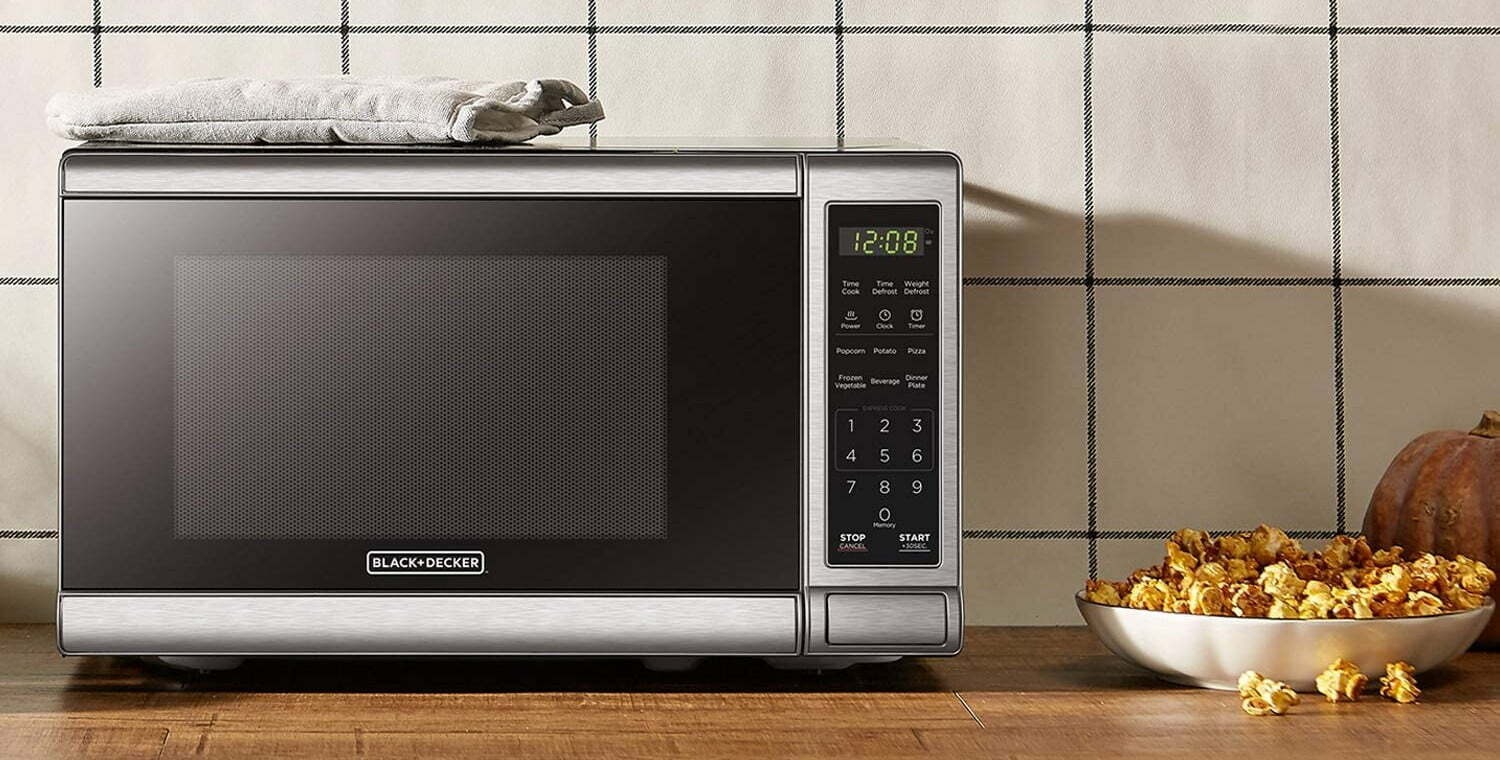
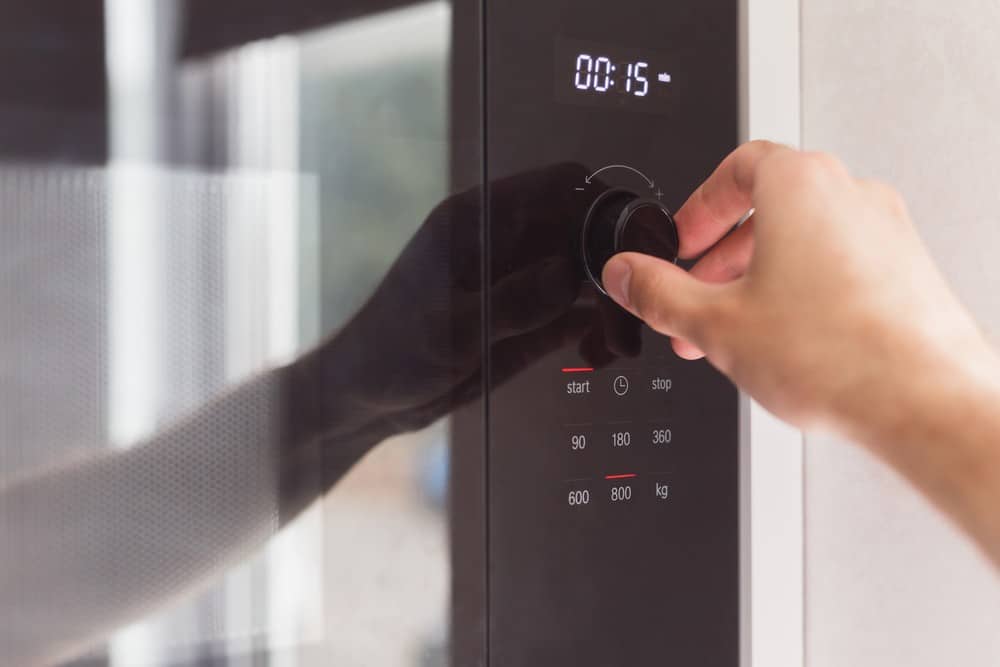
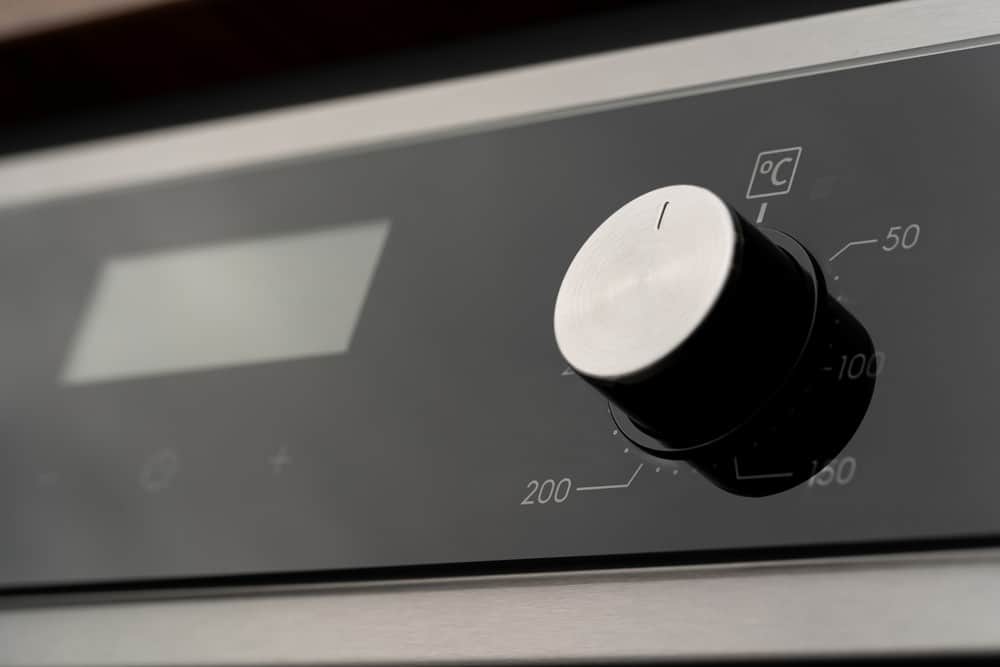
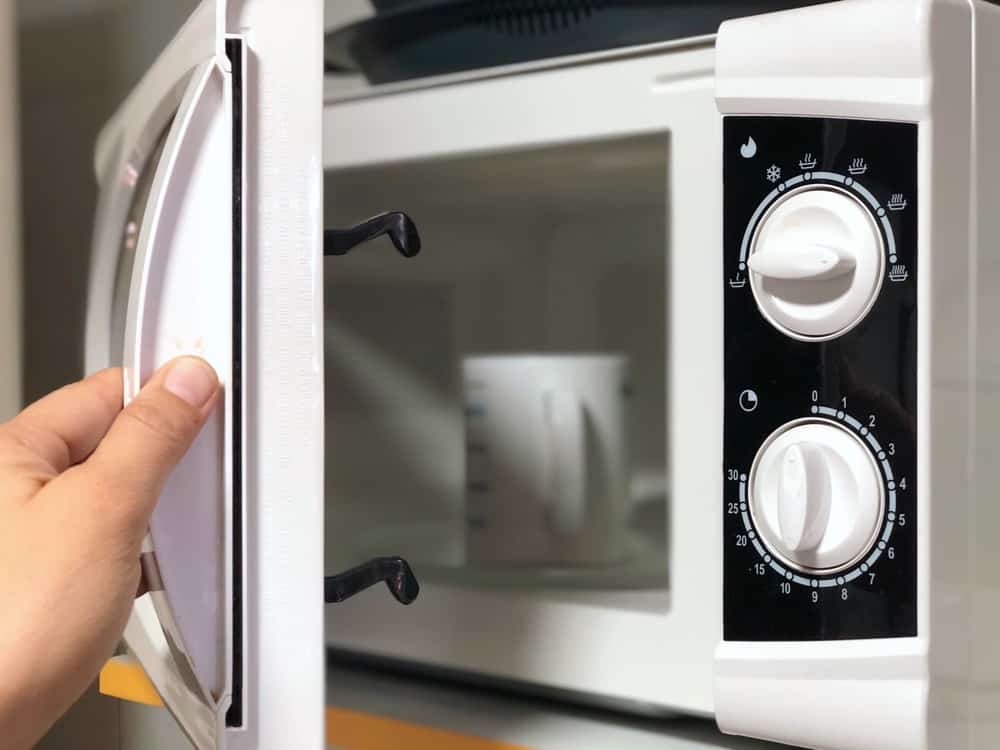

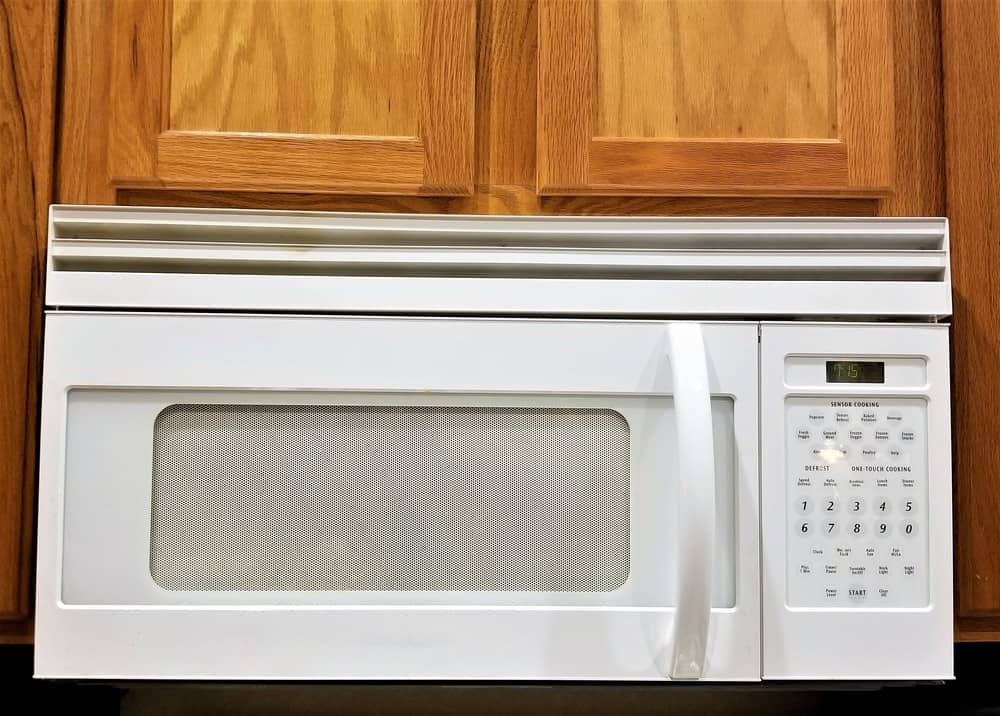




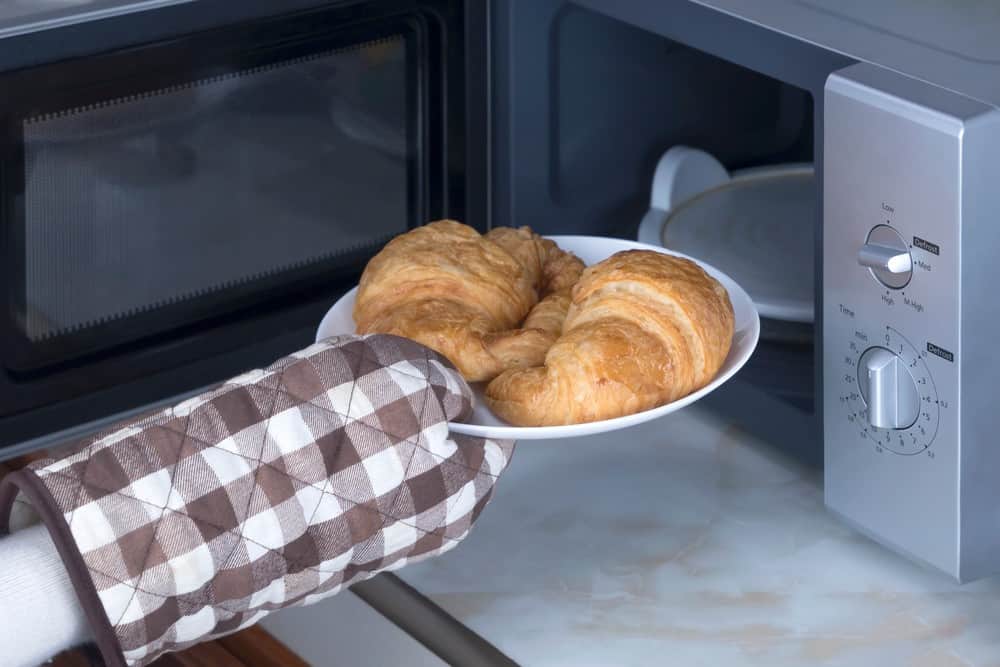

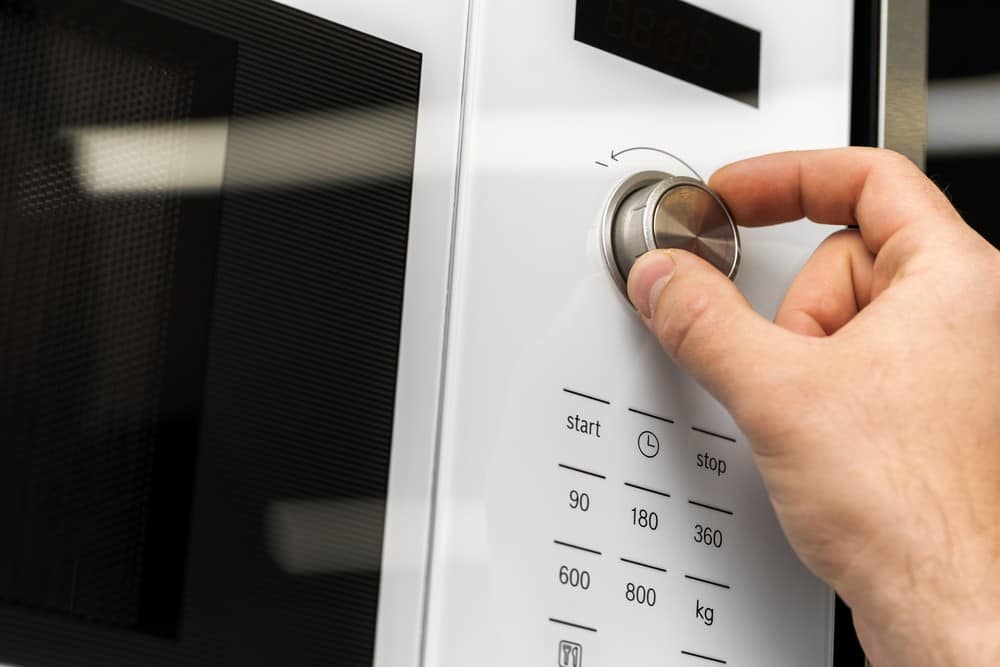
![Best Kitchen Appliances in [year] ([month] Reviews) 27 Best Kitchen Appliances in 2026 (January Reviews)](https://www.gadgetreview.dev/wp-content/uploads/best-kitchen-appliances.jpg)
![Best Whirlpool Microwaves in [year] 28 Best Whirlpool Microwaves in 2026](https://www.gadgetreview.dev/wp-content/uploads/best-whirlpool-microwaves-image.jpg)
![Best Microwave Drawers in [year] 29 Best Microwave Drawers in 2026](https://www.gadgetreview.dev/wp-content/uploads/best-microwave-drawer-image.jpg)
![Best Quiet Microwaves in [year] 30 Best Quiet Microwaves in 2026](https://www.gadgetreview.dev/wp-content/uploads/best-quiet-microwave-image.jpg)
![Best LG Microwaves in [year] 31 Best LG Microwaves in 2026](https://www.gadgetreview.dev/wp-content/uploads/best-lg-microwaves-image.jpg)
![Best Microwaves in [year] ([month] Reviews) 32 Best Microwaves in 2026 (January Reviews)](https://www.gadgetreview.dev/wp-content/uploads/best-microwaves-image.jpg)
![Best Over the Range Convection Microwaves in [year] 33 Best Over the Range Convection Microwaves in 2026](https://www.gadgetreview.dev/wp-content/uploads/best-over-the-range-convection-microwave-image.jpg)
![Best Retro Microwaves in [year] 34 Best Retro Microwaves in 2026](https://www.gadgetreview.dev/wp-content/uploads/best-retro-microwave-image.jpg)
![Best GE Microwaves in [year] 35 Best GE Microwaves in 2026](https://www.gadgetreview.dev/wp-content/uploads/best-ge-microwaves-image..jpg)
![10 Best Samsung Microwaves in [year] 36 10 Best Samsung Microwaves in 2026](https://www.gadgetreview.dev/wp-content/uploads/best-samsung-microwaves-image.jpg)
![10 Best Microwaves for Seniors in [year] 37 10 Best Microwaves for Seniors in 2026](https://www.gadgetreview.dev/wp-content/uploads/best-microwaves-seniors-image.jpg)
![10 Best Microwave Toaster Oven Combo in [year] 38 10 Best Microwave Toaster Oven Combo in 2026](https://www.gadgetreview.dev/wp-content/uploads/best-microwave-toaster-oven-combo-scaled-1.jpg)
![10 Best Panasonic Microwaves in [year] 39 10 Best Panasonic Microwaves in 2026](https://www.gadgetreview.dev/wp-content/uploads/best-panasonic-microwaves.jpg)
![10 Best Microwaves for College Dorms in [year] 40 10 Best Microwaves for College Dorms in 2026](https://www.gadgetreview.dev/wp-content/uploads/best-microwaves-for-college-dorms.jpg)
![10 Best Compact Microwaves in [year] 41 10 Best Compact Microwaves in 2026](https://www.gadgetreview.dev/wp-content/uploads/best-compact-microwave-image.jpg)
![10 Best Convection Microwave Ovens in [year] 42 10 Best Convection Microwave Ovens in 2026](https://www.gadgetreview.dev/wp-content/uploads/best-convection-microwave-oven-image.jpg)
![10 Best Built In Microwaves in [year] 43 10 Best Built In Microwaves in 2026](https://www.gadgetreview.dev/wp-content/uploads/best-built-in-microwave-image.jpg)



